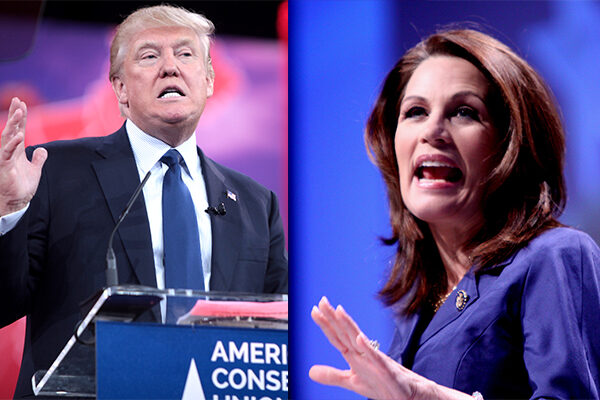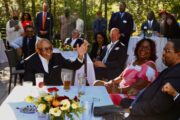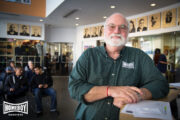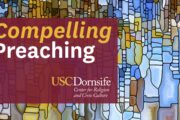Is Donald Trump the friend or foe of evangelicals?
Some argue that “real” evangelicals aren’t supporting Trump, while others attempt to explain why evangelicalism is susceptible to candidates like Trump. By meeting with more than 900 evangelicals this week and appointing an “evangelical advisory board,” Trump is at least showing his desire to connect with this voting block.
While it’s still unclear which way religious voters will fall, Trump’s choice in his advisory board—old guard, mostly white male evangelicals—is indicative of splits in the evangelical voting block that Trump has exposed. If Trump’s candidacy has given us one moment of clarity, it is that term “evangelical” is no longer a useful term to describe American Protestants. It has become a racialized, political term that is largely defined by the person using it.
In a Washington Post Op-ed, historian and Episcopal priest Randall Balmer employed one understanding of evangelicals to argue that the evangelical-Trump friendship was inevitable. Balmer frames American evangelicalism as a movement that has followed a singular, uninterrupted trajectory starting with the Scopes Trials in 1925 and culminating in the formation of the Moral Majority in the 1980’s, where it froze and has remained unchanged for the last 30 years.
To Balmer, evangelicalism is white, male-dominated, centered in the South and values hardline conservative politics above all else. He writes as if American evangelicals in 2016 are led by voices from the grave—and not Calvary. Balmer looks back to the 1980s and 1990s and cites evangelical culture warriors like, Jerry Falwell, Paul Weyrich and Robert J. Billings, institutions like Bob Jones and Liberty University as the leading voices in American evangelicalism.
Balmer provides important historical context. His depiction of evangelicals is not false, but it is incomplete.
In late April, I attended Q, a conference meant to provide a platform for evangelical leaders to engage with social issues like how should the church engage with Syrian refugees, transgender Christians, the Black Live Matter movement and a post-Christian America. The 1,200 conference attendees, nearly all evangelicals and mostly white, were asked to complete a pre-conference survey that asked who people would vote (of the then-five presidential candidates). Only 2 percent supported Trump.
The poll did not capture a representative sample of the nation’s evangelicals, (neither do the primary exit polls from Southern states that Balmer referenced) but it suggests that the Trump/evangelical relationship may be more nuanced than Trump’s assertion, “The evangelicals love me and I love them.”
One of the reasons for the disparate answers on evangelical support for Trump is because as it is used in the public sphere by media, commentators and even researchers, the term evangelical is so nebulous. Most people understand it to describe groups of a shared faith, but it is often a racial/political category dressed in religious clothing.
For example, when the Public Religion Research Institute places respondents to its American Values Atlas surveys into religious traditions, the only people who can qualify as “evangelicals” are white people. If an African-American answers the same questions, exactly as their white counterpart, they are not considered evangelical, but “Black Protestant.” The same goes for a “Hispanic Protestant” and an Asian-American would be tallied as “Other non-white Protestant.”
According to this survey, a non-white evangelical is a logical impossibility, something like a square circle.
If the American Values Atlas surveyed Newsong LA, the evangelical church I attend in Los Angeles, only a handful of members would be classified as actual evangelicals. The congregation is around 50 percent Asian American, 30 percent African American, 10 percent white and 10 percent Latino. I would be considered “evangelical” according to this survey, but the pastor would not, the worship leader would not, nor most of the Sunday school teachers.
Trump’s candidacy did not bring about the crisis of evangelical identity, it has been brewing for years. In 2008, a team of Evangelical leaders published “An Evangelical Manifesto” to address the “confusions and corruptions that attend the term Evangelical” and create a theological as opposed to political gravitational center to organize the faithful. The document was signed by many, but never gained traction. The wording was too inclusive for some, the steering team was not diverse enough for others and many politically active evangelicals thought they were being targeted by the document’s deliberate move away from the culture wars.
One of the reasons the Manifesto failed to coalesce evangelicals into a cohesive group was because the term itself is unable to capture the change in socio-demographics and institutions in American Protestantism over the last three decades. Another reason is that Christians, especially those under 30, are not lining up to be called evangelicals. Precisely because of the social, cultural and political baggage inherent to the term, many are adopting identifiers such as “Jesus Follower,” “Biblical Christian” or “Committed Christian” instead of “evangelical.” They want to identify themselves as people who are committed to Jesus, adhere to core Protestant Christian theological principles, but are not inspired by the politics, or social campaigns of the Moral Majority or by religious leaders like Jerry Falwell Sr. or Jr.
Trump hopes that an “evangelical advisory board” will help him this November, but this campaign strategy and those chosen as representatives of the “evangelical” community seem anachronistic. What it does show is that it is time for a new vocabulary to talk about Protestant Christians in the United States.
Photo Credits: Trump & Bachmann, Gage Skidmore / Wikicommons
Andrew Johnson is a contributing fellow with the USC Center for Religion and Civic Culture.





